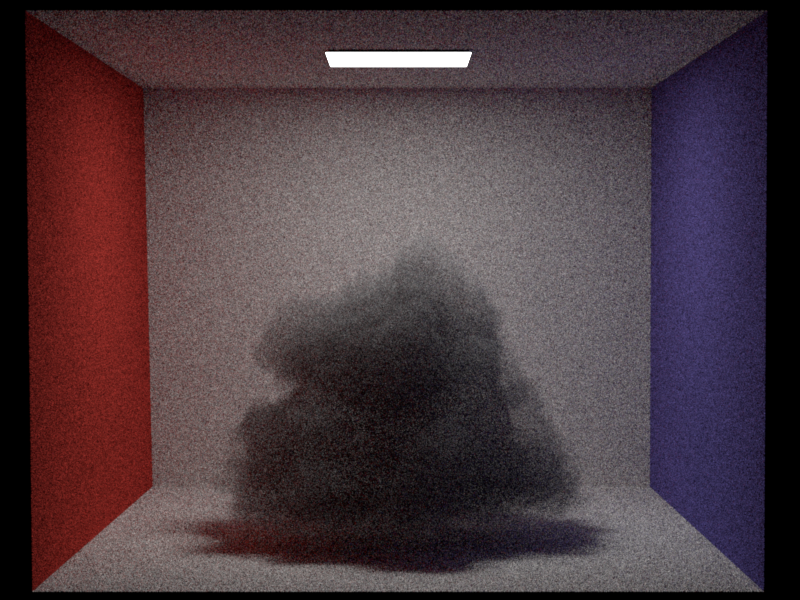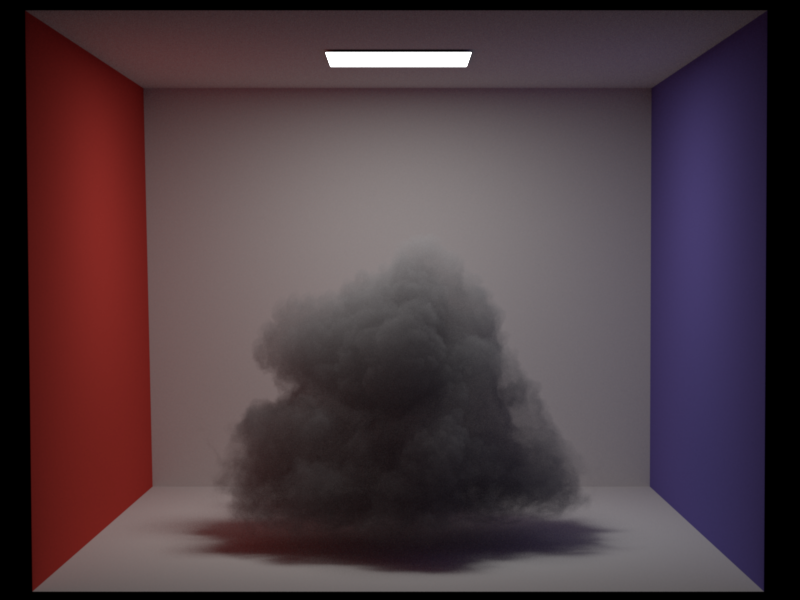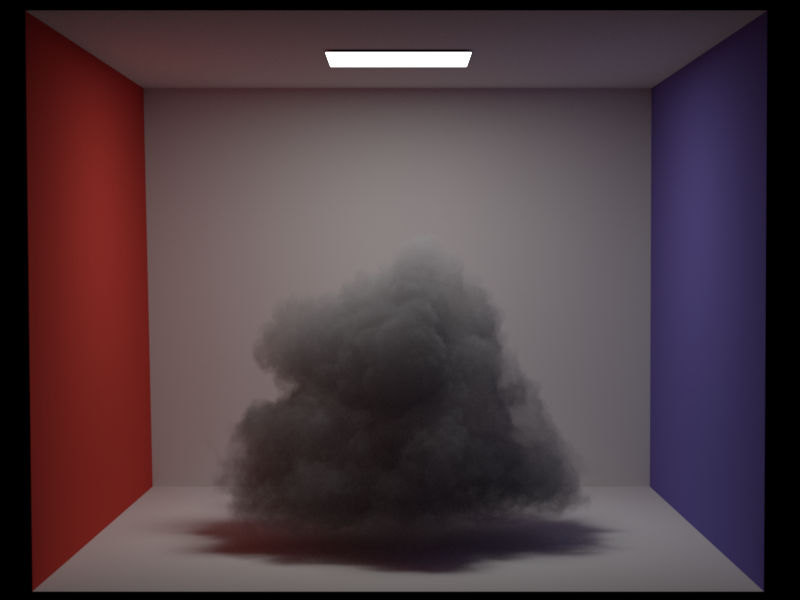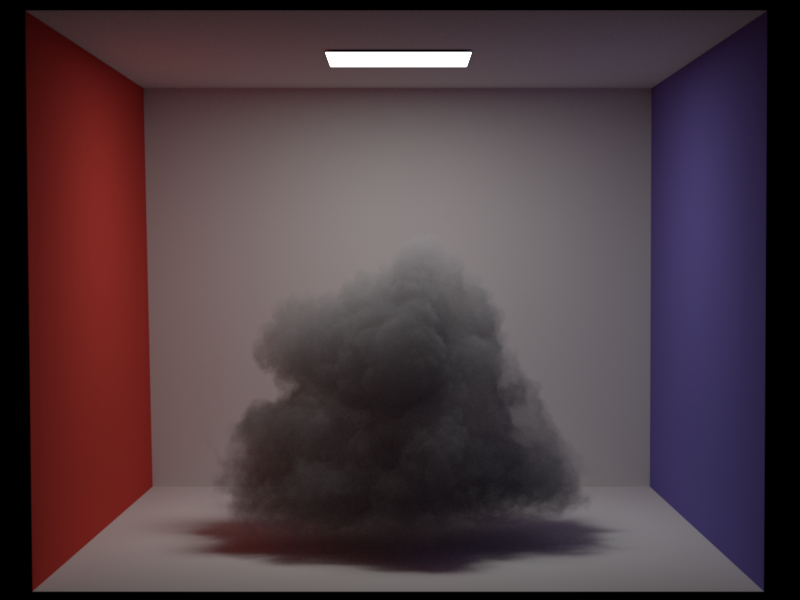Stratified Sampling
Jiayi Sun
Updated Files
- src/stratified.cpp
- src/render.cpp
Implementation
The stratified sampling is implemented based on PBRT 7.3 Stratified Sampling. We divide each pixel into a grid of subpixels and sample one point in each subpixel.
The Stratified class is inherited from the Sampler class. The m_sampleCount parameter holds the total number of samples, adjusted to fit the grid resolution. Also we add m_maxDim parameter, which controls the maximum dimensions for the precomputed arrays. Then m_jitter controls whether samples within each cell are perturbed.
If the sampling dimension exceeds the specified m_maxDim, the stratified sampler falls back to generating purely random samples.
Validation
We compare the rendering results of stratified sampling with the original independent sampling. We use a modified Cornell box scene with 4 integrators: path_mats, path_mis, vol_path_mats, and vol_path_mis. We set the spp to 32 and 512 for each integrator to observe the differences.
For path_mats and vol_path_mats, stratified sampling obviously reduced noise at both 32 spp, where Monte Carlo integration had not yet converged, and 512 spp, where the rendering was nearly converged.
For path_mis and vol_path_mis, while importance sampling already provides efficient sampling and lower noise, we can still notice the benefits of stratified sampling. In path_mis, the specular parts at the bottom of dielectric sphere and on the ground appear sharper with stratified sampling. For vol_path_mis, stratified sampling further reduces noise on the walls surrounding the cloud as well as the shading part on the ground.
32 ssp for path integrators
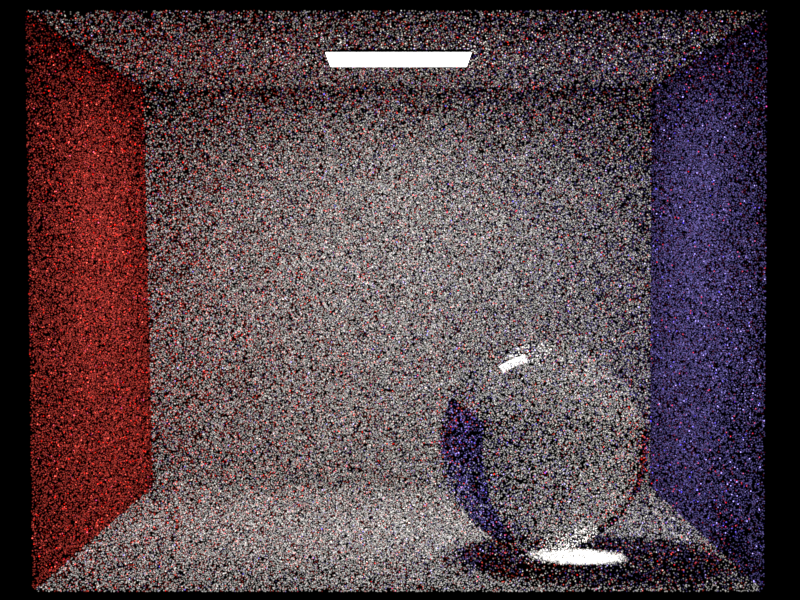
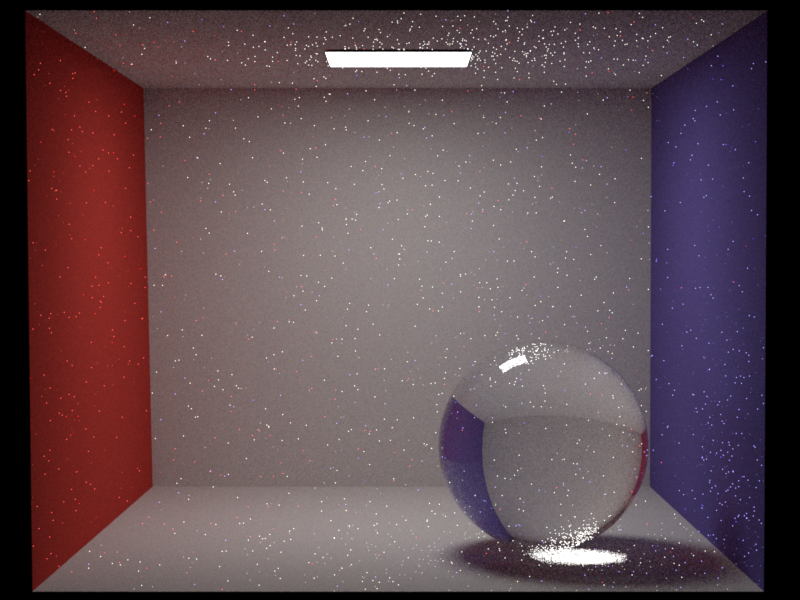
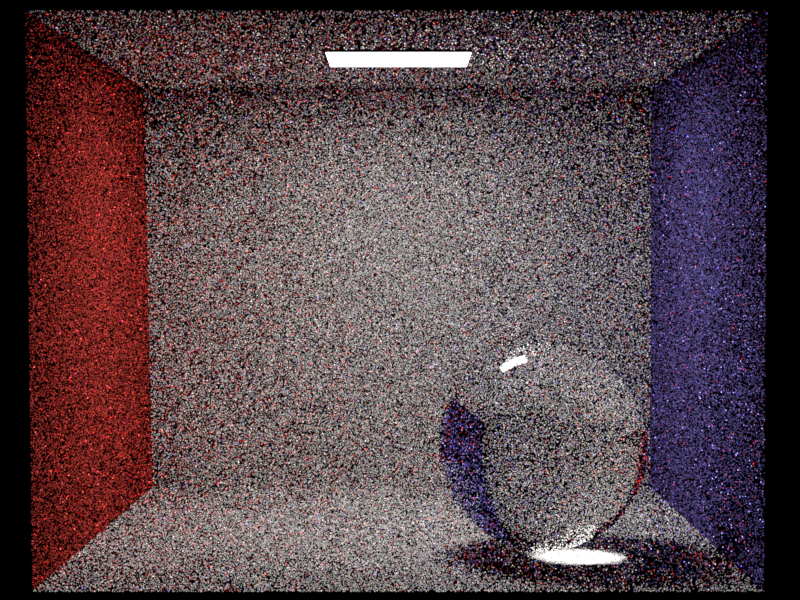
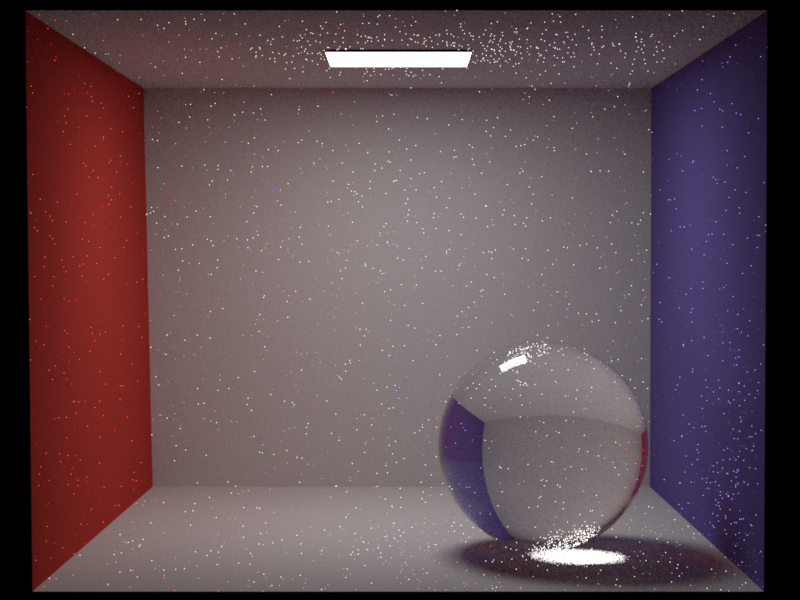
512 ssp for path integrators
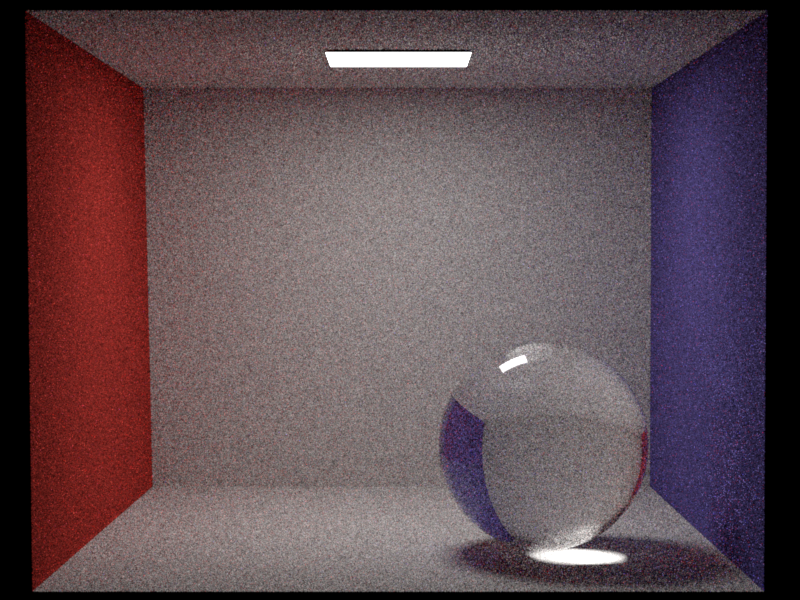
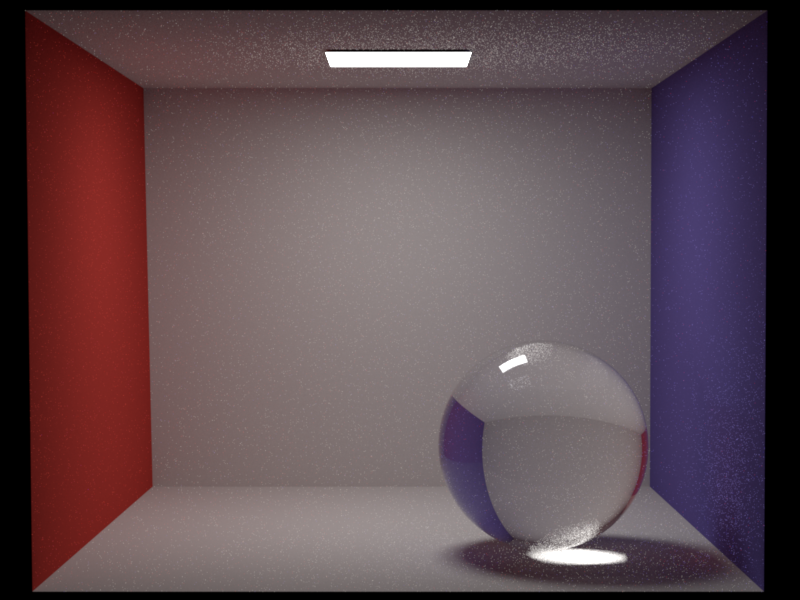
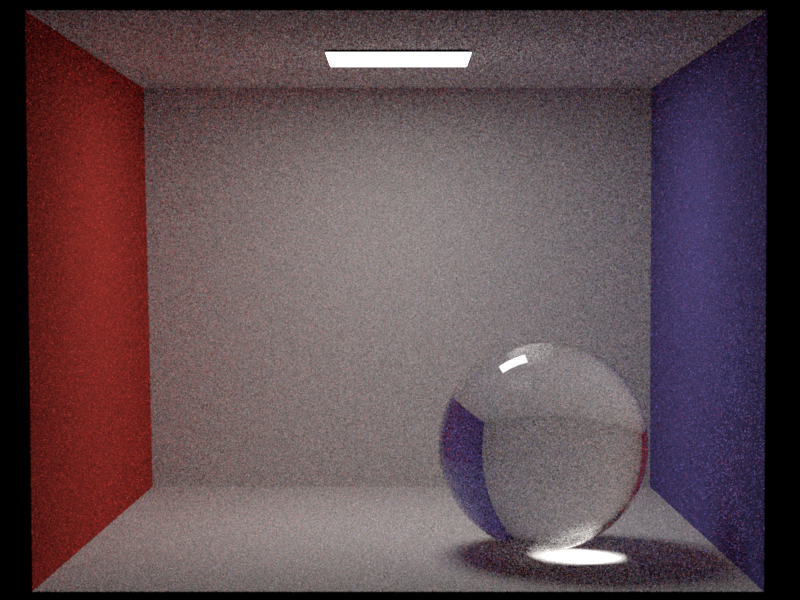
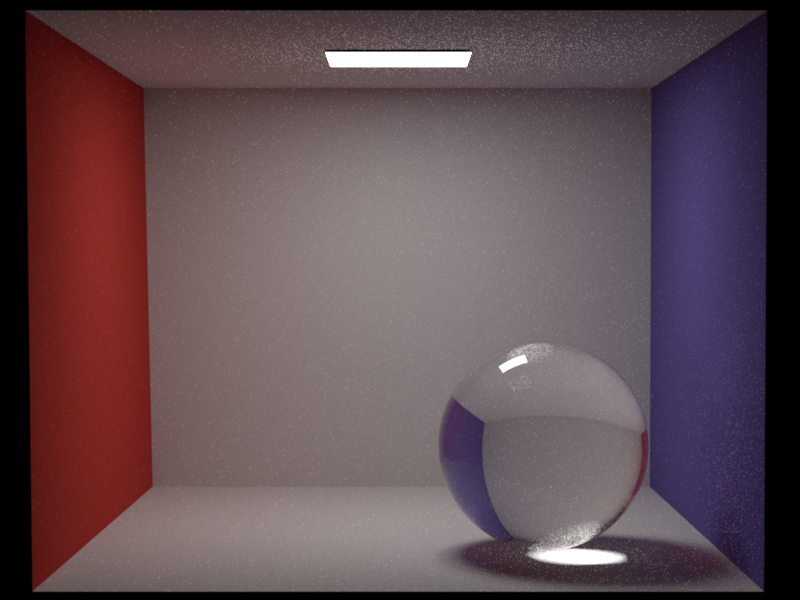
32 ssp for volume path integrators
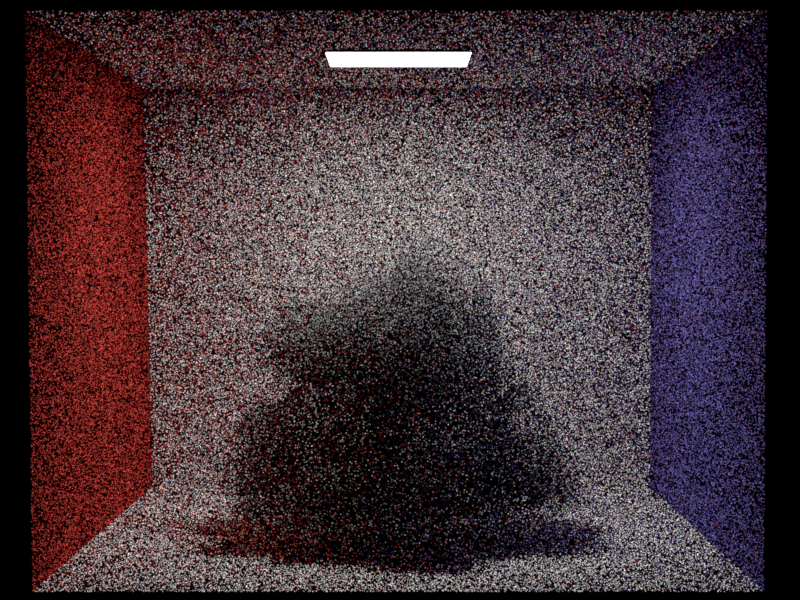
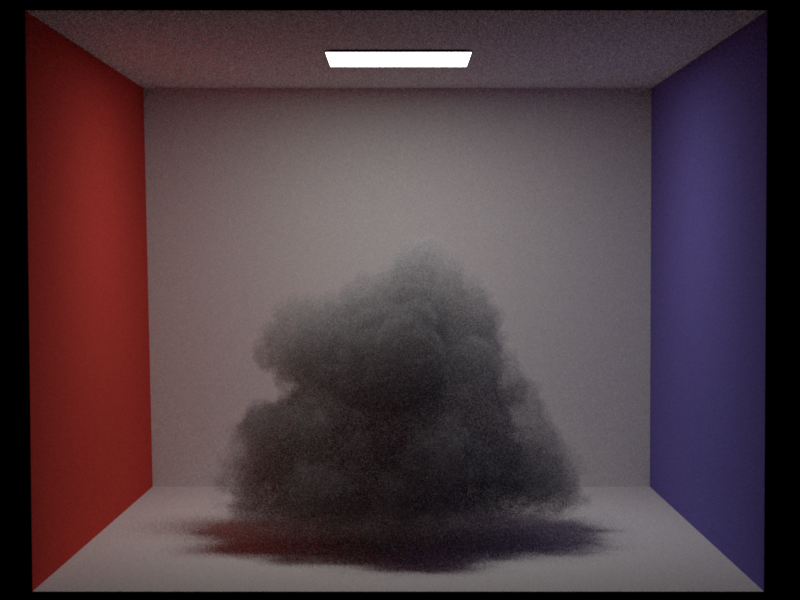
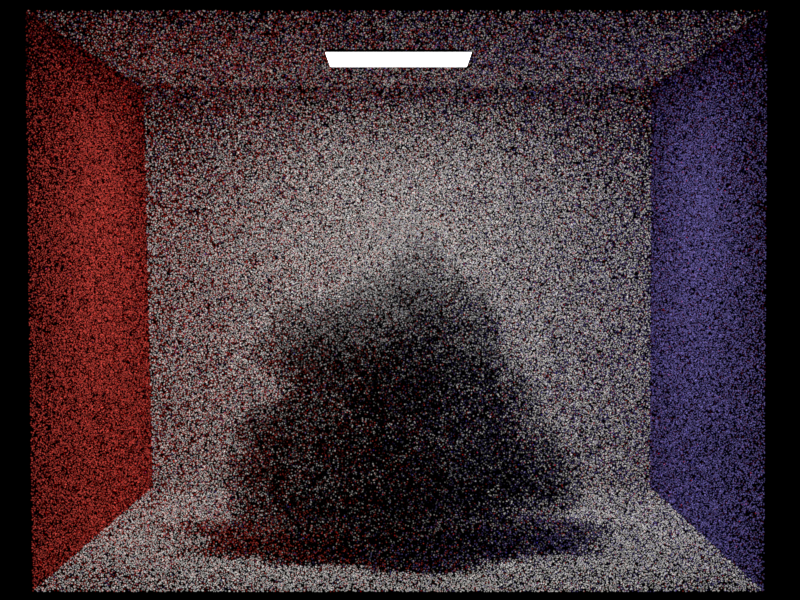
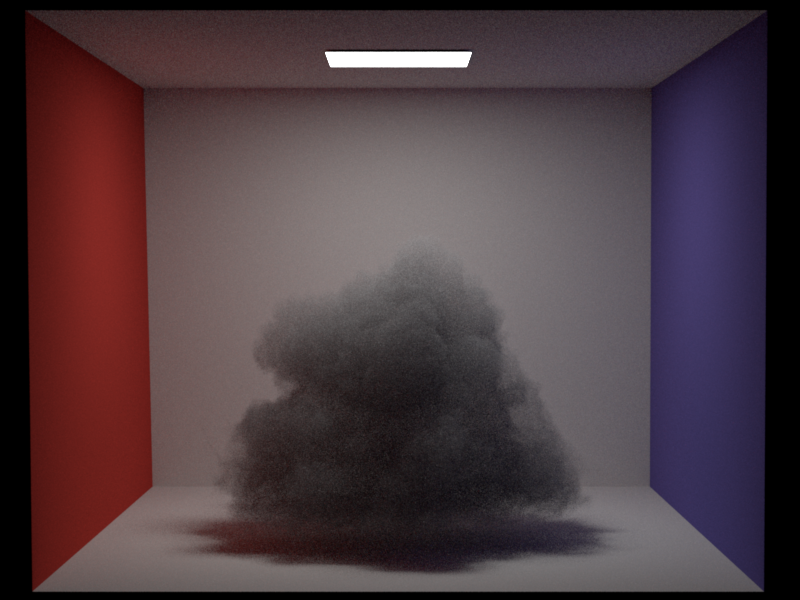
512 ssp for volume path integrators
